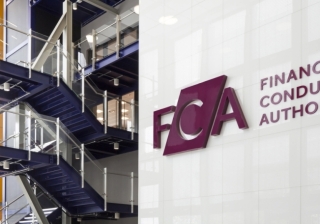DB transfer market sees ‘some improvement’ but 'worrying trends continue': FCA
The FCA has issued its latest market data on DB transfer advice covering the period October 2018 and March 2020, showing ‘some signs of improvement’ and a ‘significant fall in conversion rates’.

"The supply of advisers has fallen dramatically in recent years, and recent regulatory changes plus the cost of obtaining insurance is likely to reinforce this trend."
The latest figures show that the conversion rate (the percentage of those who seek advice who are advised to transfer) peaked at 72% in 2017, but fell to 54% by March 2020.
The FCA said that the significant fall in conversion rates indicates that firms are "starting to act more in line with our expectation and messages" that in most cases, a transfer is not in the client’s best interest.
The regulator also found a significant reduction in clients proceeding to transfer against advice as insistent clients.
However, former pensions minister Steve Webb says the data also highlights "some worrying trends which are likely to continue".
The first is the declining supply of advisers in the DB transfer market. The first data request by the FCA in October 2018 was sent to 3,042 firms, but the FCA now reports that just 1,965 firms held the DB transfer advice permission by March 2020.
Webb says that since the FCA banned contingent charging on 1st October 2020, "this is likely to lead to further exits from the market".
A second concern is the very small percentage of transfers which are made into workplace pensions. Many people who transfer out of a DB pension will be under state pension age and may well be active members of a charge-capped workplace pension scheme as a result of automatic enrolment. FCA now requires advisers to benchmark a proposed destination for the transferred funds against a low-cost workplace pension option. But the FCA data shows just 1% of transferred funds currently end up in a workplace pension, which shows how big a change it will be for advisers to be expected to actively consider a workplace pension as a destination for transferred funds.
Steve Webb said: “It is a welcome trend that historically high rates of recommendations to transfer out of Defined Benefit pension schemes are now on the decrease. But the DB transfer market remains a source of real concern. The supply of advisers has fallen dramatically in recent years, and recent regulatory changes plus the cost of obtaining insurance is likely to reinforce this trend. Members are likely to find it increasingly difficult to source high quality impartial advice if left to their own devices. This data reinforces the case for pension schemes to appoint one or more high quality advice firms to help members make good choices about pension transfers.”
Steven Cameron, pensions director at Aegon, commented: “It’s encouraging that in its latest data on the DB transfer advice market covering the 18 months from October 2018 till March 2020, the FCA has noted ‘signs of improvement’ including a ‘significant fall’ in conversion rates, or the proportion of clients being advised to transfer. The FCA has repeatedly stated that conversion rates witnessed in previous periods were higher that they believed they should be, which has been one of the key drivers behind a strong regulatory focus and tightening of rules in the DB transfer advice market. Conversion rates for the latest reporting period have fallen to 57%, but when those not proceeding to advice after triage services are taken into account, this has fallen to 46%.
“The data is from a reporting period which predates the most recent set of October 2020 rule changes so will set a benchmark for in future assessing the implications of these latest changes.
“The ban on contingent charging is likely to have a major impact on the market, with the latest data showing over three quarters of DB transfer advice was previously carried out on a contingent charging basis.
“The clarification that many triage services were crossing into advice will have led to a sharp reduction in this approach, and it is unclear if the new form of abridged advice is proving an effective replacement, or how this will affect future conversion rate reporting.
“The strengthened requirement to consider available workplace pensions as the receiving scheme unless an alternative is more suitable is also likely to have a significant impact with the data showing only 1% of transfers went into workplace pensions between October 2018 and March 2020.
“The data also confirms the ongoing fall in the number of firms with regulatory permissions to offer DB transfer advice, from 3042 in October 2018 to 1965 in March 2020 to a latest figure of 1521. With no sign of a solution to the Professional Indemnity issue and with the FCA encouraging a ‘use it or lose it’ approach to permissions, there’s every chance of further falls. It remains vital that there is a sufficient supply of advice to meet ongoing demand.”
Breaking news
Direct to your inbox:
More
stories
you'll love:
This week's biggest stories:
This week's biggest stories:
First-time Buyer
Improved affordability sparks 20% rise in first-time buyers: Nationwide

Blogs
Mark Eaton: Is 2026 the year brokers die out?

Inflation
Further rate cuts dampened as inflation rebounds to 3.4%
Mortgage Rates
Two Big Six lenders increase mortgage rates as swaps rise
Vida
Vida launches high LTV 'Pathway' mortgage range

FCA
Tribunal upholds £2m FCA fine for 'corrupt and dishonest adviser'
